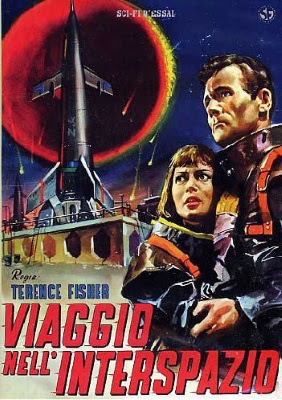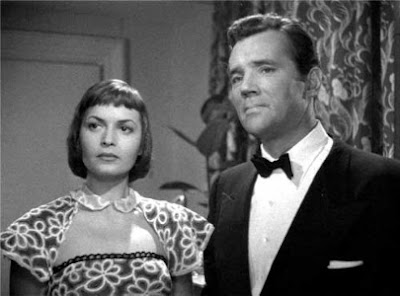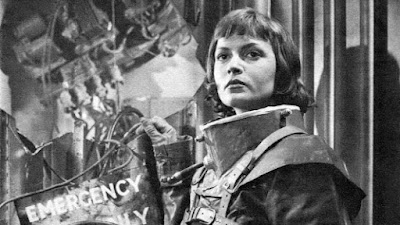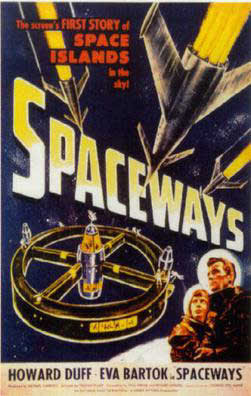Spaceways

Director: Terence Fisher
Year: 1953
Rating: 5.0
In 1953 Hammer
Studio was still nudging its way into sci-fi after years of producing crime
and comedy films. Just before this they released Four Sided Triangle which
had to do with a duplicating machine that could make an exact copy of a human.
It was directed by Terence Fisher as is this one. He was to become a mainstay
at Hammer over the next decade with many of their classic horror films. Hammer
was partnering with the American production company Lippert as they were
to do on a number of films and because of that they had to bring on an American
actor, Howard Duff. Certainly, an improvement over some of the other Americans
they hired. This film seems to get little respect but taking the year and
budget into account, I thought it was just fine. Many criticize the special
effects but again this is a low-budget film in 1953. Compared to similar
films in America it is about right on par. The other issue and a fair one
considering the marketing is that the sci-fi elements take a back seat to
infidelity, potential murder and espionage.

A British government project is building
rockets that will circle the earth as satellites. The eventual goal is to
build a Space Station that will stay up in space for decades for various
good-will reasons and as one military man states, we will be able to shoot
nukes from there. All kind of cool if you think about it. The world had yet
to send a man into space and here the writers were thinking about Space Stations.

The scientist leading the project is Mitchell
(Duff) with three colleagues - Crenshaw, Lisa (Eva Bartok) and Toby. Mitchell
has a nasty wife who is having an affair with Crenshaw and Lisa is madly
in love with Mitchell. They all live together in a secure compound that forces
them to stay on base. Ready made for personal drama and perhaps murder. A
rocket is sent up into space and then they realize that Crenshaw and the
wife are missing. An investigator suspects they are on the rocket. Dead.
it is 76 minutes long and for the most part speeds along. One kiss in which
the music flares up like the 1812 Overture was a bit much. Bartok looks very
nice in her space suit. It could have been much better but swerves away from
being too dark, especially at the end.




